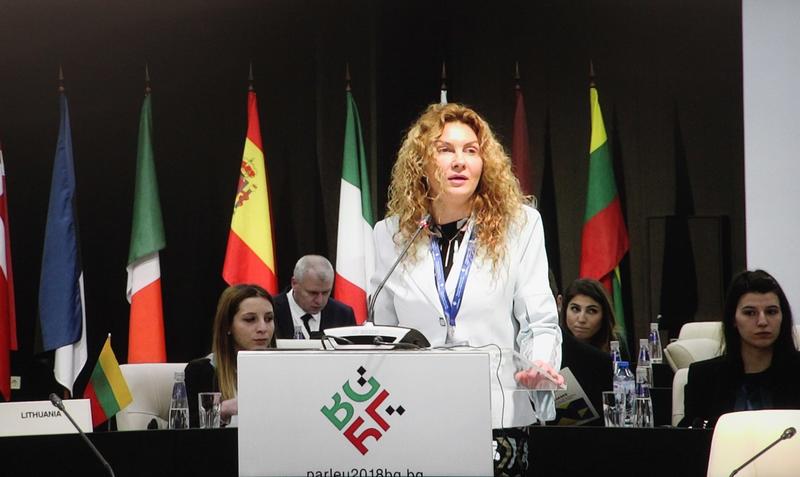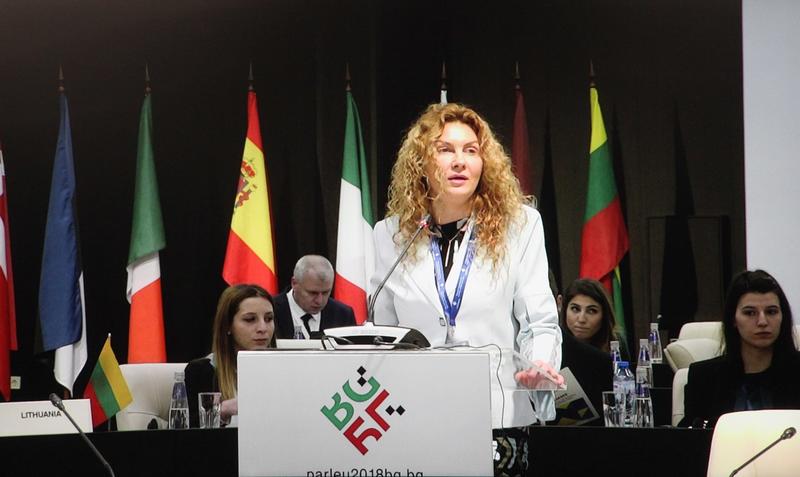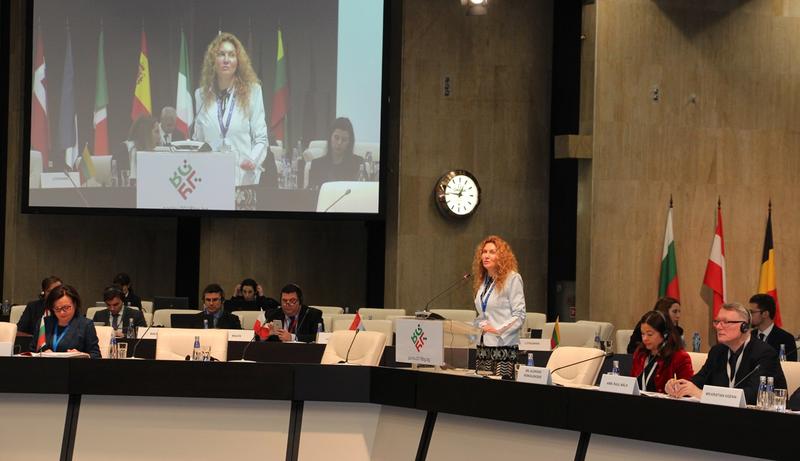Deputy Minister Denitsa Nikolova: Reducing regional inequalities should be the main policy of the European macro-regional strategies
Deputy Minister Denitsa Nikolova: Reducing regional inequalities should be the main policy of the European mac
By Ministry of Regional Development and Public Works
The Danube region has a number of opportunities for territorial cohesion and economic development of the countries along the river, through an integrated approach in partnership and support for the implementation of joint strategic projects. This was announced by Denitsa Nikolova, Deputy Minister of Regional Development and Public Works and National Coordinator for the EU Strategy for the Danube Region, during the Meeting of the Chairpersons of COSAC (Conference of the committees of the national parliaments of the European Union Member States dealing with European affairs), which is held in Sofia.
Deputy Minister Nikolova was a key speaker at the Third Session of the Forum on The Role of European Macro-Regional Strategies for Achieving Sustainable Development, Security, and Stability. In her speech, she noted that EU macro-regional strategies covering four macro-regions - the Baltic Sea, the Danube, the Adriatic and Ionian Seas and the Alps - are important as a transnational cooperation platform. They provide an integrated framework in which countries use their common potential to cope with mutual challenges. “In the context of the existing debate on the future of Cohesion Policy beyond 2020 and the place of macro-regional strategies in it, the discussion should focus on the future because national parliaments may contribute to the strengthening of macro-regional strategies as a key cohesion instrument”, Deputy Minister Nikolova said. She has paid particular attention to the need for political support in advancing the establishment of coordinated policies to achieve smart, sustainable, and inclusive growth in macro-regions. “The implementation of joint regional and macro-regional projects could play a significant part in promoting the added value of such initiatives. This could be one of the prerequisites for finding joint solutions to common challenges related to infrastructure, migration and demographic pressure, climate change or other issues that could not be solved by the relevant country or region on their own,” she said.
According to Deputy Minister Nikolova, the Danube macro-regional strategy is an example of a unique approach that provides opportunities for cooperation and networking between Member States in the Danube region. “To us, the added value of the Danube Strategy is in the partnership and support for the implementation of joint strategic projects,” Deputy Minister Nikolova said. She added that 9 projects worth over EUR 40 million were identified for Bulgaria, covering areas such as water transport, port infrastructure, energy, education, youth, innovation. “In this context, the Danube Transnational Program and the European Structural and Investment Funds play an important role that will strengthen in the future by concentrating resources on fewer, but joint interregional strategic projects, which will have a visible impact on economic development and territorial cohesion in the region,” she said. “There are great differences in the Danube region, as there are some of the most successful regions in the EU, but also some of the poorest. This provides good opportunities for achieving significant results through collaboration and exchange of experience. But additional investments and action are needed for the region to achieve sustainable progress and growth,” Deputy Minister Nikolova added. According to the Deputy Regional Minister, the mitigation of regional inequalities is extremely important for the Danube Strategy and the other macro-regional strategies as well as the creation of synergies for growth and employment in the respective regions.
Deputy Minister Nikolova reminded that the Bulgarian Presidency of the Danube Strategy will also follow the path of finding joint solutions to the common challenges. “We’ll focus this year’s discussions on two important topics in the Strategy’s Connectivity pillar, which are of utmost importance to all Member States and especially Bulgaria.”
“Macro-regions might help forming the integrated view of the future of European territory. They might become an important tool for achieving territorial cohesion in different policy areas and lead to the development of approaches such as the EU Urban Agenda. Discussions on the cohesion policy beyond 2020 are at an advanced stage and the future of macro-regional strategies should also be taken into account in this debate with a view to achieving greater focus on results and improving synergies between EU programs and instruments,” she also noted.








